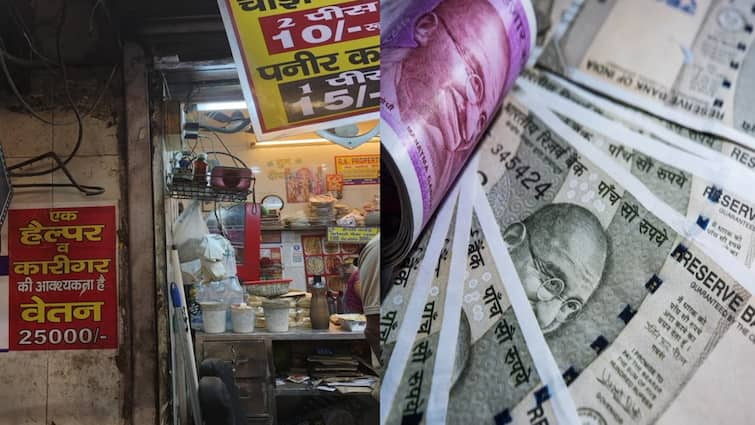Startup: Amid lack of funding and sluggish new hiring in the tech sector, the country has seen an unprecedented growth in the number of startups in all sectors in the last nine years, which has not been seen in any other country. Within a few years, India has become the third largest startup ecosystem in the world after the US and China.
According to a latest report by Nasscom, prepared in collaboration with management consultants Zinnov, the Indian startup ecosystem has been like a freight train moving ever-increasingly. Its tracks are made up of investments and acquisitions and open investment programs that have been laid out with corporate support and government support. Founders and investors alike are driving it.
Minister of State for Science and Technology Jitendra Singh said last month that the number of startups in the country has increased 300 times in the last nine years. Addressing the National Innovation Awards program at Rashtrapati Bhavan in Delhi, Singh said that before 2014 there were only 350 startups in India, whose number has now increased to more than 90,000. Despite funding shortfall, India remains the third largest tech startup ecosystem globally, with over 1,300 active tech startups added last year taking the total number of active tech startups to 25,000-27,000.
India also added 23 unicorns in 2022 – the second highest number in the world.
According to Nasscom President Debjani Ghosh, despite the current slowdown, there are immense opportunities for innovative companies that are leveraging emerging technologies to create actionable impact while prioritizing business fundamentals over growth. In August last year, the number of unicorns in India had crossed 100.
Celebrating this achievement, Prime Minister Narendra Modi in his monthly radio address ‘Mann Ki Baat’ had said that the number of unicorns in the country has reached the figure of 100 and you surely know that one unicorn is at least seven and a half thousand. Crores of Rs. The total valuation of these unicorns is more than 330 billion dollars i.e. 25 lakh crore rupees.
He had said, definitely it is a matter of pride for every Indian. You will also be surprised to know that 44 of our total unicorns were made last year. Not only this, 14 more unicorns were created in three-four months this year. The Prime Minister had emphasized that today India’s startup ecosystem is not limited to big cities only. Entrepreneurs are emerging even from small cities and towns, which shows that in India only those who have innovative ideas can create wealth.
18% startups have at least one female founder or co-founder
Apart from this, the special thing is that 18 percent of startups in the country have at least one female founder or co-founder and at least 36 existing or potential unicorns have at least one female founder or co-founder. To boost the representation of women in the startup ecosystem, the government has also announced a monthly stipend of Rs 20,000 per month for one year to women founders and co-founders of startups.
Union Minister of State for Electronics and IT Rajeev Chandrasekhar last week said there is an urgent need to increase collaboration between corporates, government, academia and startups so that the talent pool in the country can innovate and create solutions to solve real-life problems .
During his address at the CII Startups Summit, the minister emphasized on empowering startups with corporate and government support. Chandrasekhar told the gathering, this is a good time to enhance the relationship between corporates, government, academia and startups to help enhance the innovation capabilities and innovation ecosystem capabilities of our country.
He said that the country has come a long way in the last nine years in the direction of empowering startups. The minister said, this is an exciting time for young entrepreneurs in India as they have a lot of opportunities. Chandrasekhar also said that the upcoming Digital India Act (DIA) will be an enabler for startup innovations in the country.
He insisted, Prime Minister Narendra Modi Very clear that whatever the government does, it should not cause difficulties for innovation in the startup space.
According to the NASSCOM-Zinnov report, while the concern about the drop in funding is understandable, a deeper analysis of market behavior and investment trends reveals that the startup ecosystem has not only been able to survive the downturn, but will also be able to survive the 2023 recession. I also continues a renewed focus on investors and customers.
Given the strong fundamentals of consumer demographics, third generation entrepreneurs and a strong tech talent pool, the Indian startup ecosystem is ready to weather the storm.
read this also
Google fined $ 32.5 million, now know who and why imposed heavy penalty





